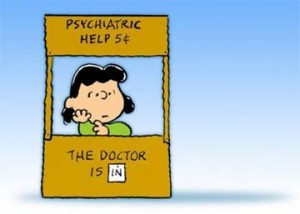
One of the issues that makes finding a therapist so difficult is that people often don’t even know where to begin looking for a therapist. If you needed to see a medical doctor, you could just ask some trusted friends for their recommendations or even post to Facebook – and you could be confident that you would be given some good options. But when someone is looking for a licensed therapist, people tend to do the opposite – opting not to disclose this need to those closest to them. While this is a trend that is rapidly changing thanks in large part to the shrinking stigma that surrounds seeking therapy, it does make finding a therapist even more challenging.
Luckily, there are a number of resources out there that can help you identify therapists that are local to you and that also meet any specific criteria you might be looking for. Examples of sites like these are https://www.psychologytoday.com and https://www.networktherapy.com . Both of these sites allow you to search by multiple criteria including the therapist’s location, specific specialties, gender, educational background, and especially what type of health insurance plans they accept – if any. This can be very useful information for a potential patient to have when searching for a therapist, as there tend to be many therapists to choose from – particularly in Massachusetts.
Another resource that people often overlook is their insurance providers’ websites. Each insurance company has a searchable directory of the clinicians who accept their insurance. If you are planning on using insurance to pay for your sessions, this can be very helpful in narrowing the field of potential therapists. It should be noted that, while sites like Psychology Today and Network Therapy do allow people to search by what insurance companies the therapists take, sometimes the therapist neglects to fill out this information for those sites. Therefore, if you are unsure if a therapist you found on those sites accepts your insurance, it might be best to either check for them on your insurance provider’s website, or to just call the therapist directly and ask.
But locating a therapist is only half the battle. How do you know if that therapist is a good fit for you? This is truly the most challenging part of finding the “right” therapist. The most important ingredient for success in therapy is the therapist-patient relationship. If you don’t feel connected to your therapist, it is unlikely you will find your sessions as productive as they could be. And if you’ve had a bad experience with a therapist in the past, it makes the decision to return to therapy much more difficult. That is why I have always told my patients that finding a therapist isn’t much different than buying a car. The best way to find out if it suits you is to take it out for a test-drive. While this may seem time-consuming, consider the alternative – sticking with a therapist that you don’t particularly care for or find helpful. It could be well-worth your time to schedule an initial meeting with a therapist in order to see how you “click” and the potential for a successful therapeutic relationship Many therapists will even offer a free consultation as a way to allow potential patients to evaluate them and determine whether this could be a potentially beneficial relationship for the individual.
It is important to remember that YOU are the priority when you decide to seek treatment. It is important that you find a therapist that meets your criteria and needs, and not the other way around. Ultimately, your therapist works for you. Take this opportunity to be empowered and take the first steps towards self-improvement.
